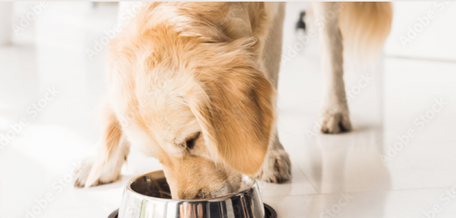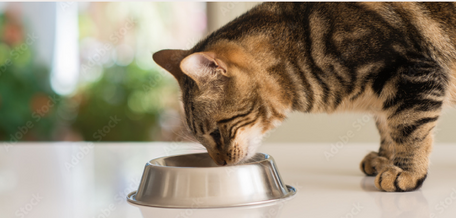
Looking to start feeding your pet a raw diet? Here’s how you can open the conversation with your vet.
Talking to your veterinarian about your pet's diet is as important as regular check-ups. When it comes to raw pet food, though, the conversation can get tricky. Vets, dedicated to your pet's well-being, often have valid concerns about the safety and nutritional balance of raw diets. At BJ’s Raw Pet Food, we recognize these concerns and aim to help encourage pet owners like you with the knowledge and confidence to navigate these discussions effectively.
In this blog, we're taking a look into why vets may hesitate about raw pet food, how to have a productive conversation with your vet on this topic, and why BJ’s Raw Pet Food is your go-to for safe and balanced raw pet food options.
Whether you're considering switching your pet to a raw diet or looking for validation if you're already feeding raw—this guide is here to give you insights and strategies inspired by real conversations with veterinarians. Let's explore the world of talking with your vet about tricky topics and all things raw pet food.
Why vets are cautious about raw pet food
First things first, let’s understand why veterinarians may have concerns about raw pet food and look into how to combat these queries.
Most issues relating to vets and a raw diet for dogs or cats primarily revolve around two key factors—safety and nutritional adequacy.
Safety concerns
Raw pet food, especially homemade or improperly handled products, can pose risks of bacterial contamination such as Salmonella, E. coli, or Listeria. These pathogens not only endanger your pet's health but can also potentially affect human members of your household—but don’t be put off, if it’s done right, they’re in excellent hands.
Nutritional adequacy
Another concern vets often raise is the nutritional balance of raw diets. Crafting a balanced raw diet requires careful consideration of protein sources, essential vitamins and minerals, and the appropriate ratio of muscle meat, organ meat, and bones. Without proper guidance or a well-formulated commercial product like those offered by us at BJ’s Raw Pet Food , pets may miss out on vital nutrients essential for their growth, energy levels, and overall health.
How to approach the conversation with your vet
When discussing raw pet food with your veterinarian, approach the conversation with respect for their expertise and concerns. Here's how to navigate the discussion effectively, without any issues.
1. Educate yourself
Before the conversation, familiarize yourself with the benefits and potential risks of raw pet food. Understand why you're considering this diet option and be prepared to discuss your pet's specific health needs and dietary history. Never patronize, and always listen to one another.
2. Acknowledge their concerns
Start by acknowledging your vet's concerns about raw pet food. This demonstrates that you value their opinion and are open to hearing their perspective.
3. Provide evidence-based information
Present factual information from reputable sources such as veterinary studies, pet nutritionists, or trusted raw pet food providers like us here at BJ’s Raw Pet Food. Share insights into the safety protocols and nutritional standards upheld by reputable raw pet food manufacturers. And in our case, you can head over to our “why raw” page to learn all the FAQs.
4. Discuss safety measures
Assure your vet that you prioritize your pet's safety. Highlight the safety measures taken by BJ’s Raw Pet Food, such as High-Pressure Processing (HPP) to eliminate pathogens while preserving nutritional integrity.
5. Collaborate on monitoring and health check-ups
Propose a collaborative approach where you and your vet work together to monitor your pet's health and well-being on a raw diet. Regular check-ups and monitoring can provide reassurance and early detection of any dietary adjustments needed.
By approaching the conversation with knowledge, respect, and a collaborative mindset, you can build a stronger partnership with your vet and make sure that your pet receives the best care possible on a raw pet food diet.
Addressing vets' concerns about raw pet food
Veterinarians care deeply about your pet's well-being, and their concerns about raw pet food stem from a dedication to keeping pets safe and healthy. Let's take a look into some common worries vets may have and how you can navigate these discussions effectively.
1. Safety from bacterial contamination
- Vet's concern: Vets often worry about the potential for harmful bacteria like Salmonella or E. coli in raw pet food, which can pose risks to both pets and humans.
- Your approach: Share how BJs Raw Pet Food prioritizes safety with practices like High-Pressure Processing (HPP), which kills pathogens while preserving the food's nutritional value.
2. Achieving nutritional balance
- Vet's concern: Ensuring your pet gets all the essential nutrients in the right proportions can be challenging with homemade or poorly formulated raw diets.
- Your solution: Explain how BJ’s Raw Pet Food works with pet nutritionists to meet strict AAFCO standards, ensuring every meal is nutritionally complete and balanced.
3. Supporting digestive health
- Vet's concern: Transitioning to a raw diet can sometimes cause digestive upset if not done gradually or if the diet lacks variety and balance.
- Your strategy: Offer tips on easing the transition to raw pet food, like gradually introducing new foods and ensuring a mix of proteins and nutrients in your pet's diet.
4. Benefits of raw bones
- Vet's concern: Some vets caution against feeding raw bones due to potential risks like dental fractures or digestive blockages.
- Your perspective: Highlight the dental health benefits and natural enrichment raw bones provide when properly included in a balanced diet. Explain how BJ’s Raw Pet Food ensures bone safety through careful processing.
Above all, it’s about doing what’s right for your four-legged friend
Discussing raw pet food with your vet isn't just about nutrition—it's rooted in our deep love for our pets. At BJ’s Raw Pet Food, our journey began in 2016 when our own beloved dogs faced health concerns. Switching to raw dog food transformed their lives and became the driving force behind our mission.
Since then, BJ's Raw Pet Food has been dedicated to providing high-quality, balanced meals that prioritize your pet's health and happiness. Our commitment to safety and nutrition, including innovative practices like High-Pressure Processing (HPP), ensures every meal is crafted with love and care for both cats and dogs.
Whether you're exploring the benefits of raw pet food or seeking guidance on transitioning your pet, collaboration with your vet is the best thing you can do. Together, you can work beside each other to make sure that your beloved pet enjoys a diet that supports their natural instincts and promotes vitality—here’s to a happy, healthy four-legged friend!




















